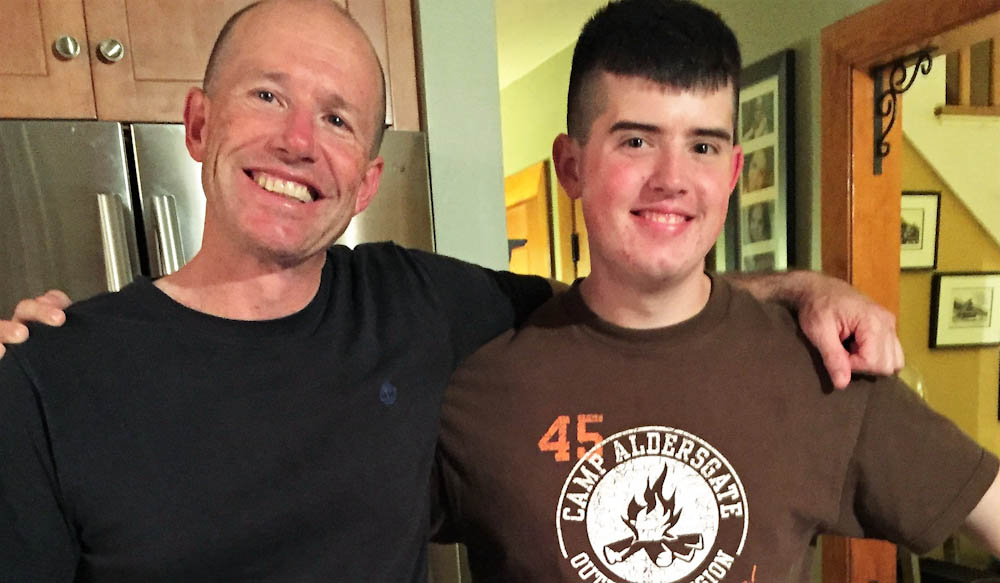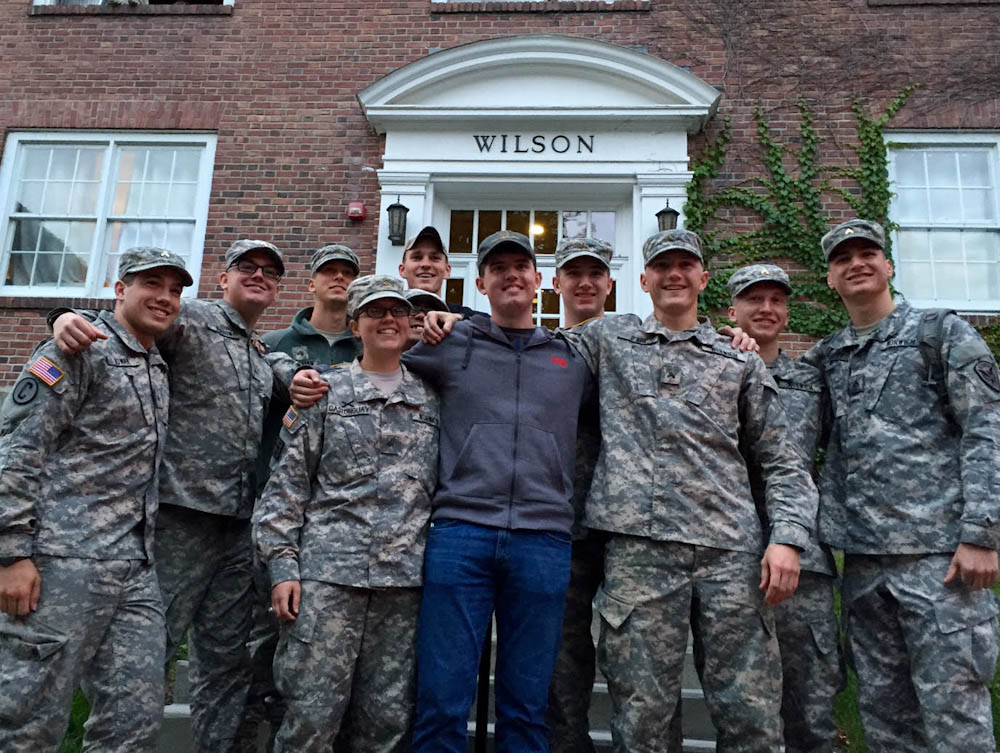I recently read the Insight blog post, From Pediatric to Young Adult Patient: The Importance of Advocating for Yourself, and I found it very enlightening. As I read about Jeremy’s experience dealing with cancer as a young adult, it occurred to me that his point of view has a flip-side: parenting a young adult with cancer.
Our son, Matt, was diagnosed with Ewing sarcoma on Sept. 15, 2015, and began chemotherapy the day before his 20th birthday. He was only a few weeks into his sophomore year of college when we learned of his illness.

Steve (left) and his son, Matt, who was diagnosed with Ewing sarcoma in September 2015. “We believe that empowering Matt from the start is important to his overcoming the health challenges he is facing now and the ones he will face in the future.”
We are still coping with the shock of our son’s diagnosis and its effects on his life. The first of many changes Matt had to face was withdrawing from college to focus on his treatment. He had to leave a school and lifestyle that he loved and part with some of his closest friends. The uncertainty involved with the hectic pace of testing and the preparation for chemotherapy made for an emotionally challenging time, as did the start of chemotherapy itself. As we went through that experience, our focus as parents was on making sure that Matt understood events as they unfolded and helping him grapple with the many changes in his life.
As one can imagine, the prospect of facing cancer as a young adult is tremendously challenging. On the one hand, Matt is an adult who greatly values his independence. On the other, his inexperience and excellent health left him ill-prepared to deal with the complexities of long-term cancer treatment, such as insurance, frequent and lengthy hospital visits, and a complicated regimen of chemotherapy and outpatient care. We believe that empowering Matt from the start is important to his overcoming the health challenges he is facing now and the ones he will face in the future.
Instead of making his decisions for him, we decided to help Matt take charge of his treatment. We helped him learn about his illness, the effects of his medications, and the importance of advocating for himself. As our family climbs the learning curve that every cancer patient faces, we ensure Matt fully understands what his doctors are telling him and the implications of his treatment options. We think that the process of learning about his treatment will help him mature and enable him to build important relationships with his caregivers.

Matt saying farewell to his friends at Norwich University.
Although the early results of Matt’s treatment are very encouraging, we know that several months remain on the journey toward his cure. Until the day Matt is declared cancer-free, we will support him along every step of his journey. The courage and grace Matt has shown while undergoing treatment has inspired us all and makes us confident that he will not only survive his cancer, but become a stronger and more capable person because of it.
